By John O’Ceallaigh
The president and founder of Red Carnation Hotels, Beatrice Tollman may be from South Africa, but it is in Botswana, at the enticingly named Paradise Island in the Okavango Delta, that her company will launch a pioneering new safari lodge that is intended to serve as the Tollman family’s “legacy”.
Pronounced “Kee-jera” and set to debut in January 2021, Xigera will feature just 12 suites, with its maximum of 24 guests catered to by a staff of 105. The initial arrivals will, say the Red Carnation team, be the first to enjoy “a new era” of safari lodges.
What that appears to mean in practice is an unusually meticulous focus on art and design; an emphasis on highly personalised, flexible service; and a comprehensive focus on sustainability and environmental responsibility right from the off.

That focus on arts and design stems in part from Red Carnation’s collaboration with Cape Town-based Southern Guild gallery, and an active endeavour to embed throughout the property specially commissioned artworks by some of Africa’s most promising young artists. Among the notable works in this “living gallery” will be human-sized nests by Porky Hefer, curious and cosy nooks in which guests can perch in comfort as they reflect on their day. Woodsman Adam Birch will spend months at the lodge hand-carving mangosteen and knobthorn trees right where they have naturally fallen to create benches and seats. Back at the lodge, a totemic fire pit sculpture has been thrashed into shape by blacksmith Conrad Hicks.
Each finished with timber, bronze and hand-carved wooden pieces, suites will feature custom-made furniture available for purchase. Undulating roofs have been modelled to resemble the wings of the Pel’s fishing owl, an elusive, enigmatic bird that lives near water and which can occasionally be seen locally. While overwater villas might more commonly be associated with the likes of the Maldives, every suite here will float above the water so wildlife can amble underneath – thrilling wildlife encounters will be possible without guests needing to stray more than a few metres from the comfort of their bed. Among the more impressive abodes, a two-bedroom family lodge extends across two islands, its disparate parts connected by a bridge. Additional on-site facilities will include a pool and a spa whose design has been inspired by the form of lilies.
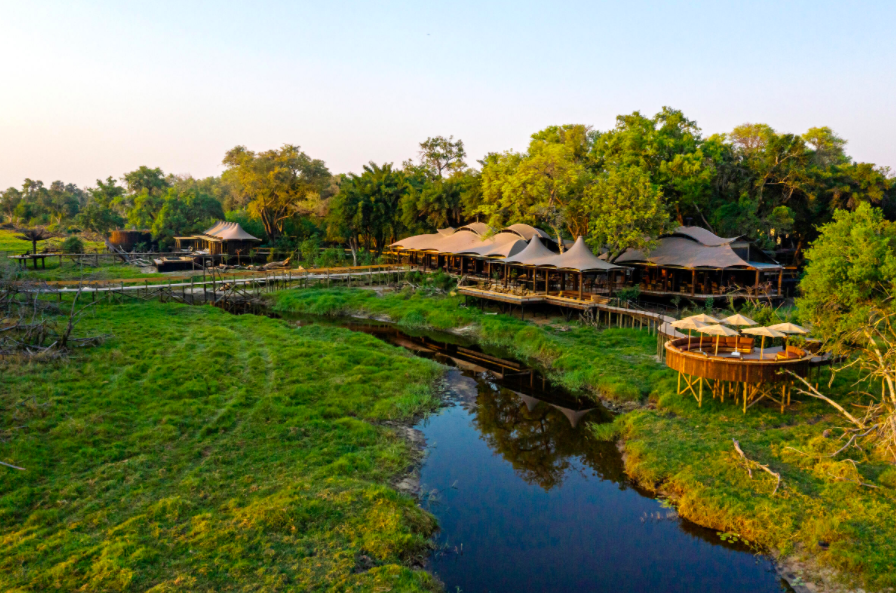
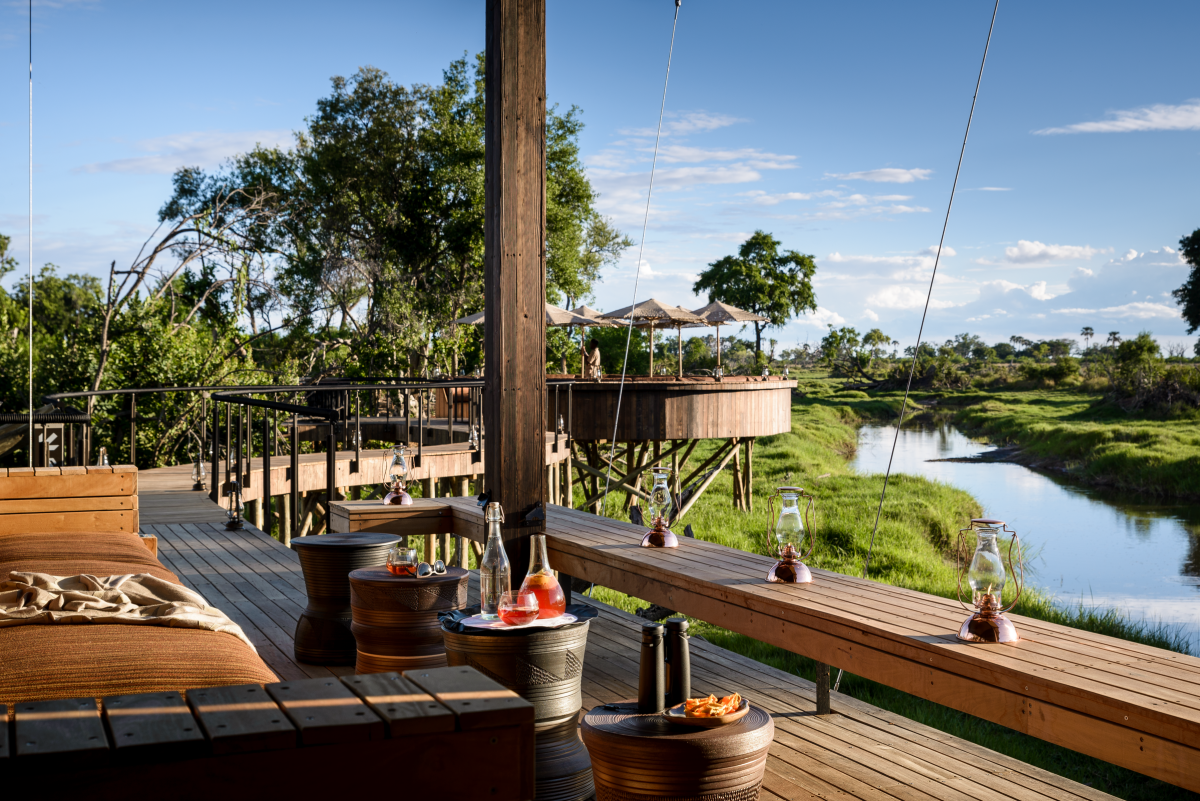
Rather than being restricted to sunrise and sunset drives, guests will have the freedom to explore the surrounding Moremi Game Reserve whenever they wish, and notable sightings are almost guaranteed. Over a third of Africa’s elephant population moves through northern Botswana each year so herds’ appearance is highly likely. Added to that will be possible greetings from all manner of colourful birds, impala, leopard, buffalo, vervet monkeys, hippos, highly endangered African wild dogs and lions, the local population of whom have developed the unusual ability to climb trees competently and can occasionally be seen on the lookout from their branches.
Taking full advantage of the Okavango Delta’s waterways, there will additionally be the opportunity to enjoy feet-in-the-water sundowners after drifting aboard a traditional canoe, glass-bottom mokoro or motorboat. More adventurous guests will additionally have the opportunity to sleep away from the main lodge in an isolated three-storey-high structure designed to resemble a baobab tree. (Incidentally, did you know that real baobab trees can live for up to 4,000 years? There’ll be plenty of these ancient adansonia to admire on game drives too.)
Ensuring that the surrounding landscape remains in fine fettle will also be an ongoing preoccupation for the Xigera team. The lodge will be 95 percent powered by solar energy and the property is set to be entirely single-use plastic free; buildings have been designed to blend in with the landscape and be as unobtrusive as possible, while suites have been made without concrete. The property will also collaborate with the TreatRight foundation, the not-for-profit conservation organisation that was founded by Red Carnations Hotels parent company TTC.
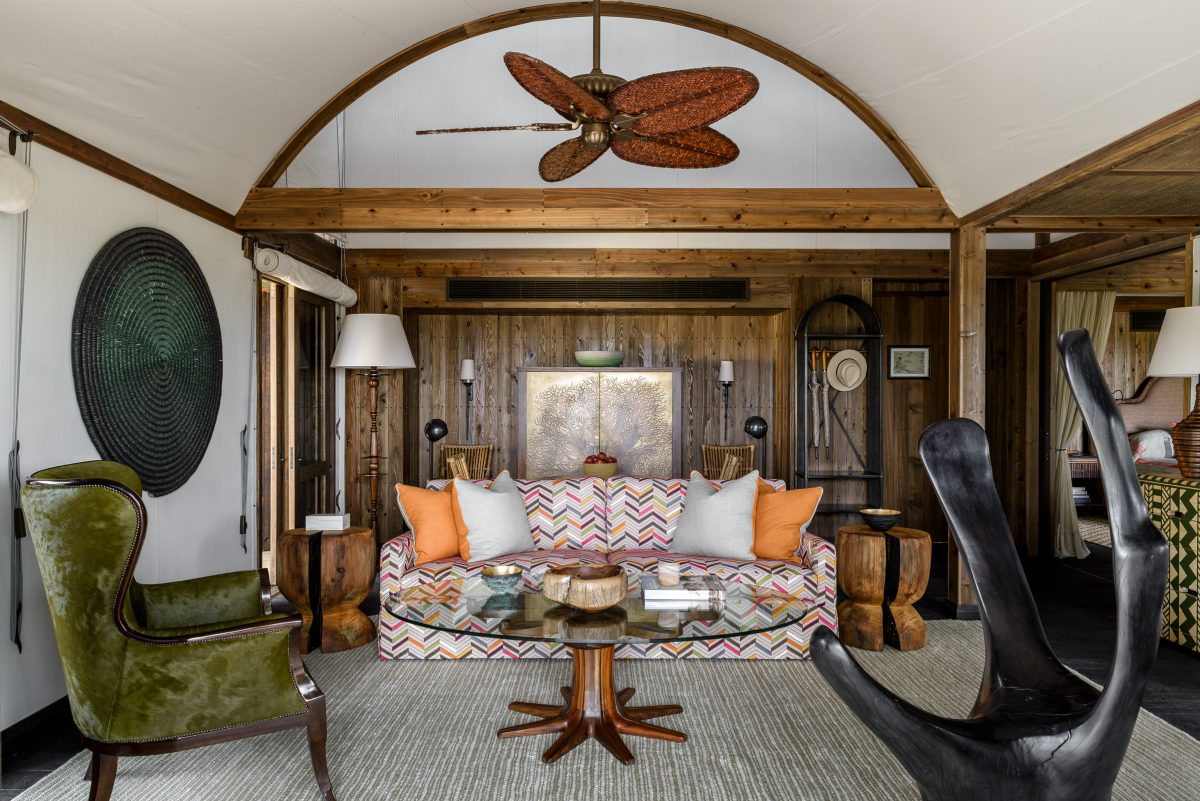
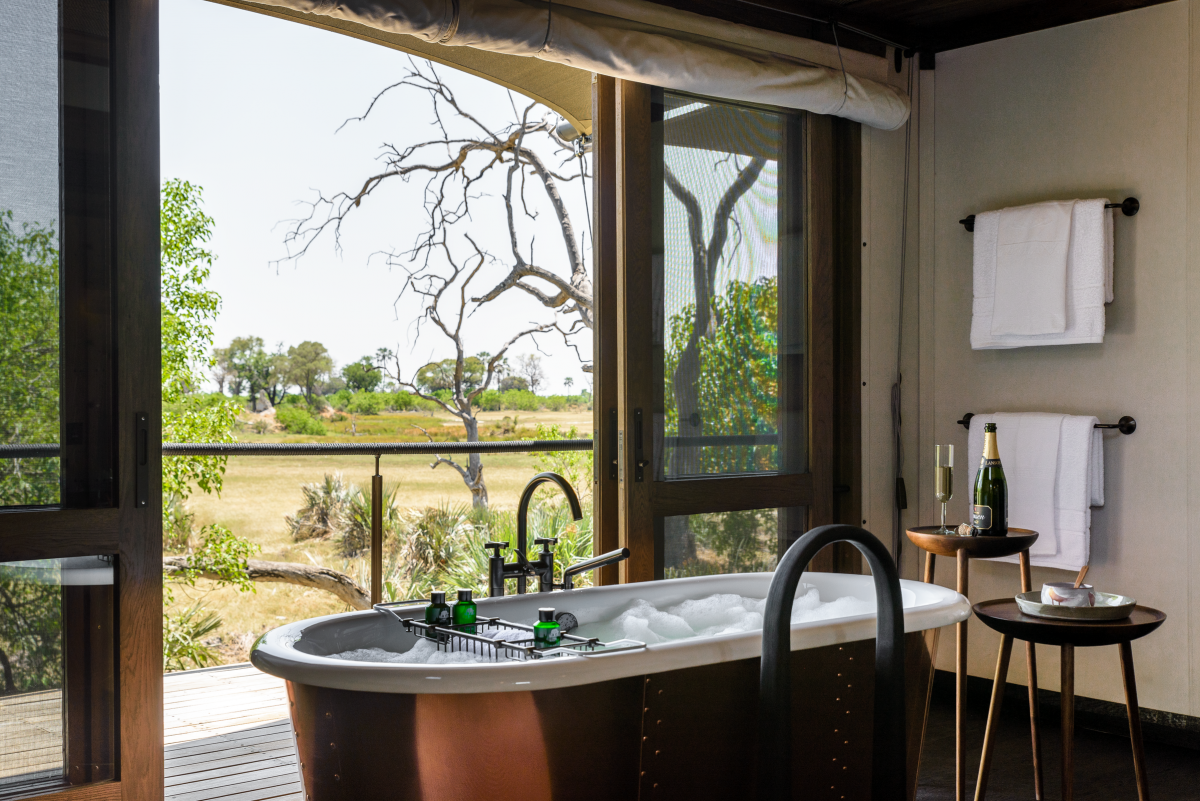
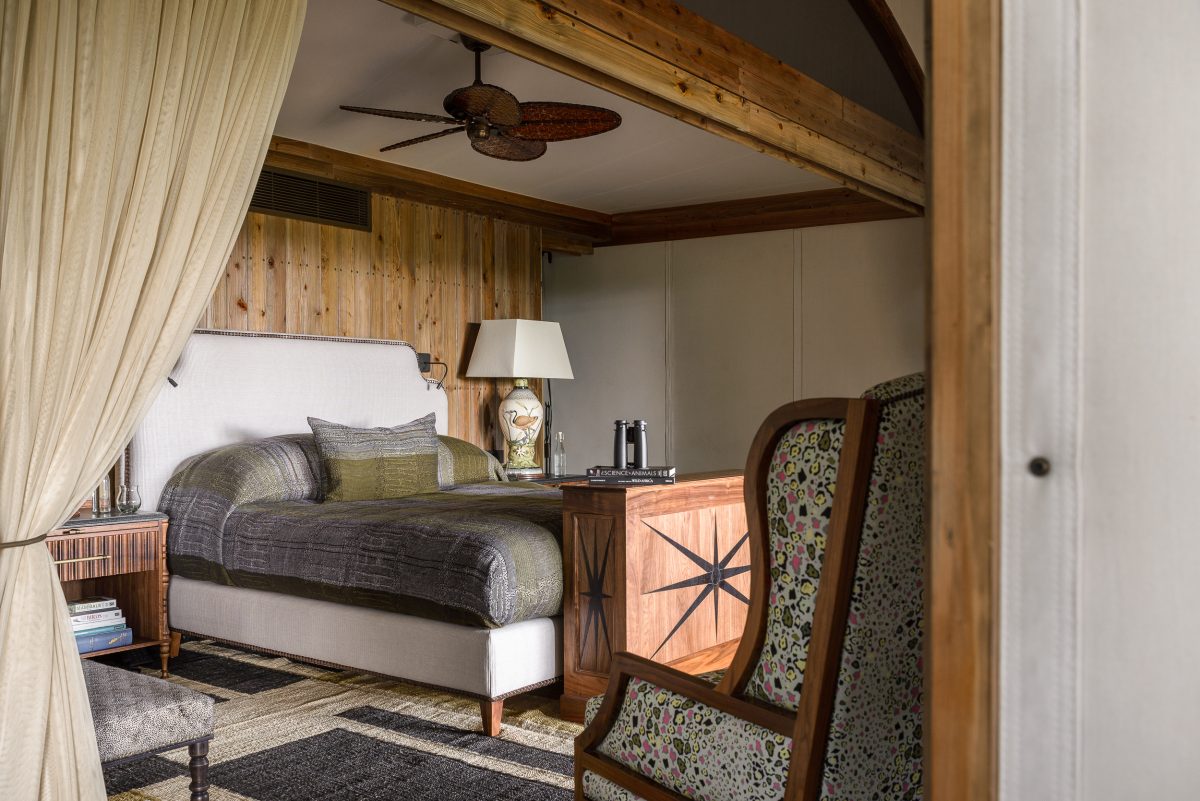
(TTC stands out to me as one of the travel companies that really does take its sustainability responsibilities seriously, and the corporation recently How We Thread Right, a five-year sustainability strategy tied to the UN’s Sustainable Development Goals and with 10 ambitious targets all to be achieved by 2025, and company-wide carbon neutrality to be achieved by 2030 or earlier.)
Unlikely to attract the attention of many Xigera clients is the additional emphasis management is placing on ensuring the lodge’s 100-plus staff live comfortably and happily. Their accommodation, says Red Carnation Hotels, will be “unparalleled” in Africa, with each team member having their own accommodation with double bed, en suite, kitchen and lounge.
And to give the company further credit, it does have a long-standing reputation for treating its staff commendably. I regularly visit RCH’s current flagship Ashford Castle in the west of Ireland and staff there frequently offer unsolicited praise of their employers. If you’ve ever stayed with no escape in an isolated property populated by irate, demoralised and unmotivated staff – I have – you’ll know that behind-the-scenes initiatives like that make all the difference to the efforts staff make to ensure guests are as happy as can be.
All-inclusive rates at Xigera start from $5,100 (£3,950) per couple per night.
